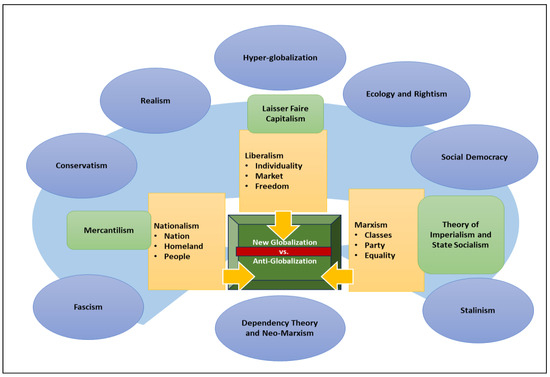How Economic Policy Decisions Shape Societies: Trends, Challenges, and Solutions
Table of Contents
- The Fundamentals of Economic Policy
- The Role of Policymakers in Economic Development
- Current Economic Policy Trends
- Key Challenges Facing Policy Decisions
- How Data and Research Drive Smarter Policies
- Looking Ahead: Solutions for Tomorrow’s Economy
- Conclusion
Key Takeaways
- Economic policies impact nearly every aspect of daily life — from jobs and wages to healthcare and infrastructure.
- Recent global events have put an intense spotlight on economic decision-making, highlighting where policy can be both reactive and proactive.
- Understanding today’s economic challenges equips readers to engage in meaningful discussions about fiscal, social, and growth policies.
- Reliable research and data help demystify complex policy choices for a broader audience.
The Fundamentals of Economic Policy
Economic policy determines how societies allocate scarce resources, invest in future growth, and ensure the well-being of their citizens. Whether through fiscal measures, taxation, or public spending, each decision influences the opportunities available to individuals and businesses. Voices like Peter Orszag, a well-respected economist and policy commentator, continually emphasize the necessity of thoughtful, data-informed approaches. By examining expert perspectives, it becomes clear that economic policies set the ground rules for everything from employment rates to social equality.
Decisions about economic policy filter into daily experiences. When lawmakers alter tax structures or direct spending toward healthcare and infrastructure, households experience direct effects on their cost of living and access to services. This deep connection between policy design and quality of life highlights the importance of continuous public engagement and understanding. Policies are not static—they must adapt to changing economic realities both at home and on the global stage.
The Role of Policymakers in Economic Development
Policymakers bear the critical responsibility of steering national and regional economies toward long-term prosperity. Their choices—whether supporting innovation in technology, investing in strategic sectors, or setting limits on government debt—can power growth and shape the directions economies take for generations. Investment in education, for example, can open new pathways for upward mobility and equal opportunities. Similarly, prudent regulation can stabilize financial systems and prevent bubbles or crises.
Effective economic leadership requires a blend of foresight, flexibility, and a willingness to learn from past successes and failures. Legislators, executive leaders, and financial authorities must strike a balance between short-term relief measures and long-term strategic goals. Lessons from the past decade’s economic volatility show that robust leadership relies not only on technical expertise but on a commitment to transparency and public trust.
Current Economic Policy Trends
In today’s rapidly evolving landscape, a few policy topics dominate the international conversation. Inflationary pressures, wage stagnation, the aftermath of the COVID-19 pandemic, and global supply chain disruptions remain central concerns. Governments have moved beyond traditional responses, exploring targeted fiscal policy adjustments and coordinated international efforts. The ongoing debate over the balance between stimulus and austerity is exemplified by policy shifts in the U.S. and across Europe, as governments weigh the need for immediate economic support against the risks of overheating economies.
Wage growth, job security, and accessible healthcare have also become key priorities. Public demand for more inclusive policies has prompted governments to reassess their social safety nets and invest in resilience, including strengthening healthcare systems and reinforcing supply chains. Major global bodies, such as the International Monetary Fund, provide regular analyses to help policymakers benchmark their progress against that of their international peers.
Key Challenges Facing Policy Decisions
Economic policymakers must navigate a complex web of challenges, including balancing a sustainable economic recovery, managing rising public debt, addressing social inequities, and adapting to global shocks. Sudden downturns—triggered by financial crises, geopolitical tensions, or pandemics—can demand immediate action and place extraordinary pressure on decision-makers.
Additionally, the pace of technological change forces policymakers to respond with agility. From digital currencies to climate-related shocks, today’s uncertainties require a commitment to adaptability.
How Data and Research Drive Smarter Policies
Modern policy decisions increasingly rely on accurate data, empirical research, and predictive modeling to design solutions that withstand scrutiny. Transparent use of reliable data allows policymakers to move beyond partisan debates and focus on measurable outcomes. These research-driven approaches can unearth inefficiencies and pinpoint opportunities for reform.
Research also plays a vital role in evaluating the effectiveness of past policies. Evidence gathered through rigorous studies helps leaders refine strategies for improved societal outcomes. In the digital era, access to large datasets and advanced analytics makes it easier than ever to tailor responses to specific economic challenges.
Looking Ahead: Solutions for Tomorrow’s Economy
The way forward depends on harnessing the lessons of recent experience while keeping long-term sustainability and social inclusion at the core. Successful policy frameworks will combine risk-taking with adequate safeguards, prioritizing investments in education, sustainability, and equitable growth.
As national economies become more interconnected through trade, technology, and environmental policy, there is a growing need for collaborative international efforts. Coordinated responses to challenges such as climate change, digital transformation, and inclusive innovation will help build economic resilience and foster shared prosperity in the decades ahead.
Conclusion
Economic policies are perpetual works in progress—vital instruments that reflect and shape societal priorities. By staying engaged with expert insights and monitoring independent research from trusted sources, individuals and communities can better understand and ultimately influence the decisions that determine their economic and social futures.
